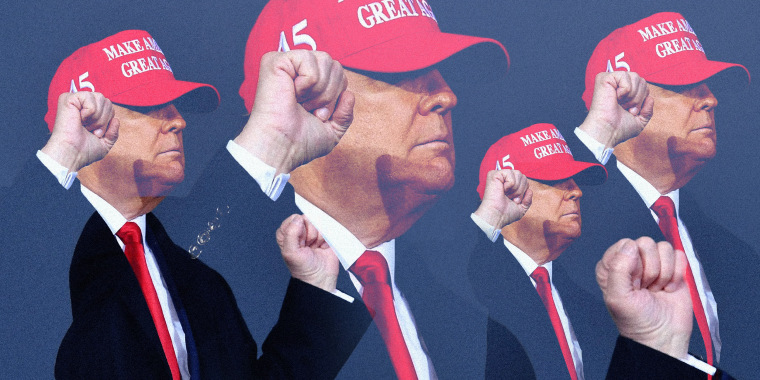Although President Donald Trump isn’t acknowledging it publicly, he has lost the 2020 election to former Vice President Joe Biden. The two most recent examples of defeated one-term presidents, Jimmy Carter and George H.W. Bush, quickly conceded defeat and retired from public office, continuing to work for nonprofits or writing books while preparing their presidential libraries. But that doesn’t seem a likely path for Trump, who has still refused to even concede to the president-elect.
The two most recent examples of defeated one-term presidents, Jimmy Carter and George H.W. Bush, quickly conceded defeat and retired from public office.
Hopefully, once the Trump campaign’s various legal challenges have predictably fizzled out, we will see a peaceful transition of power by the inauguration. But Trump leaving the Oval Office in January doesn’t mean he has to leave it forever. Instead, rumors are already circulating that he’ll attempt another run for the presidency in 2024.
Trump wouldn’t be the first defeated president to win a second nonconsecutive term — that honor belongs to President Grover Cleveland, both the 22nd and 24th president of the United States. Cleveland is largely forgotten today, but he was hugely consequential as president. He was the first Democrat elected to the presidency after the Civil War and was deeply influential over many of the central issues of his day, including the battle over the gold standard, Civil War pensions, the tariff, labor relations and civil service reform.
In many ways, our era actually resembles the late 19th century politically.
The late 19th century was a time of massive change in American life, including widespread industrialization and social upheaval. After the Civil War, Republicans (who at the time were quite different ideologically than today’s Republican Party) locked down control of the presidency and Congress. That didn’t begin to change until the near-loss of popular-vote winner Samuel Tilden in 1876 to President Rutherford B. Hayes, in one of the tightest elections ever, ultimately decided by a special commission. By the 1880s, close party competition had returned with narrow margins in both houses of Congress and even a tied Senate at one point.
Want more articles like this? Follow THINK on Instagram to get updates on the week's most important political analysis
Cleveland was elected president in 1884, in a narrow victory over Republican James Blaine. Cleveland barely won the popular vote and only succeeded in the Electoral College because he carried his home state of New York. As president, Cleveland supported reforms to professionalize the federal workforce and signed the first major regulatory law, the Interstate Commerce Act of 1887, which for the first time would provide national supervision of the railroads.
Cleveland ran again in 1892, defeating Harrison, gaining a second term in office and becoming the only person to hold the presidency for two non-consecutive terms.
Cleveland lost in 1888 to Benjamin Harrison but won the most votes, the second time in that era that the popular vote winner didn’t become president. (In some ways, as I’ve written before, Trump also resembles Harrison, taking office after a possibly failed effort at a massive political transformation — Harrison after Cleveland, and Trump after President Barack Obama, whose efforts at remaking the political system in his image began strongly but ultimately petered out.) Cleveland ran again in 1892, defeating Harrison, gaining a second term in office and becoming the only person to hold the presidency for two nonconsecutive terms.
Cleveland ran again because he wanted to cut back the high tariff that Republicans had imposed in 1890, as well as supporting a full return to the gold standard. But Cleveland’s second term largely ended in disaster, as the Panic of 1893 sent unemployment soaring and led to the worst economic collapse up until the Great Depression.
At least two other presidents have attempted the nonconsecutive feat as well. Martin van Buren, who had been president from 1837 to 1841 as a Democrat and the successor to President Andrew Jackson, was defeated in 1840 by Whig candidate William Henry Harrison. He then launched a comeback in 1848 as the candidate of the Free Soil Party, a third party created to oppose the extension of slavery into the territories gained in conquest during the Mexican-American War. Van Buren finished last in that contest, gaining no electoral votes.
The other president to try another run was Theodore Roosevelt, who also ran as the candidate of a third party, the Progressive Party. Roosevelt had been elected in his own right in 1904, after becoming president in 1901 following the assassination of President William McKinley. He then decided not to run again in 1908, and his hand-picked successor William Howard Taft became president. Roosevelt and Taft’s friendship dissolved over their political differences in the early years of Taft’s presidency, and Roosevelt launched a bid to regain the Republican nomination in 1912. When that failed, he created his own party and nearly won — the closest a third-party candidate has ever come to the White House.
Donald Trump could, like Teddy Roosevelt, split his party if he runs again as potential candidates like Nebraska Sen. Ben Sasse, Maryland Gov. Larry Hogan, Arkansas Sen. Tom Cotton, former Ambassador to the United Nations Nikki Haley and others stake out more traditional positions on many issues. Or perhaps, like Grover Cleveland, he gets his party’s nomination and takes his shot at a second term. Either way, Trump will not quietly retire. In fact, we’re likely going to have to contend with his presence in the political arena for years to come.
Related:
- Trump's legal challenges are dead in the water. But he can still win by losing.
- Trump's post-election farce proves there are no more moderate Republicans
- Legally Trump doesn't have to concede — symbolically it's vital he does anyway
- Why Trump's lame-duck period could be one of the most treacherous in U.S. history


